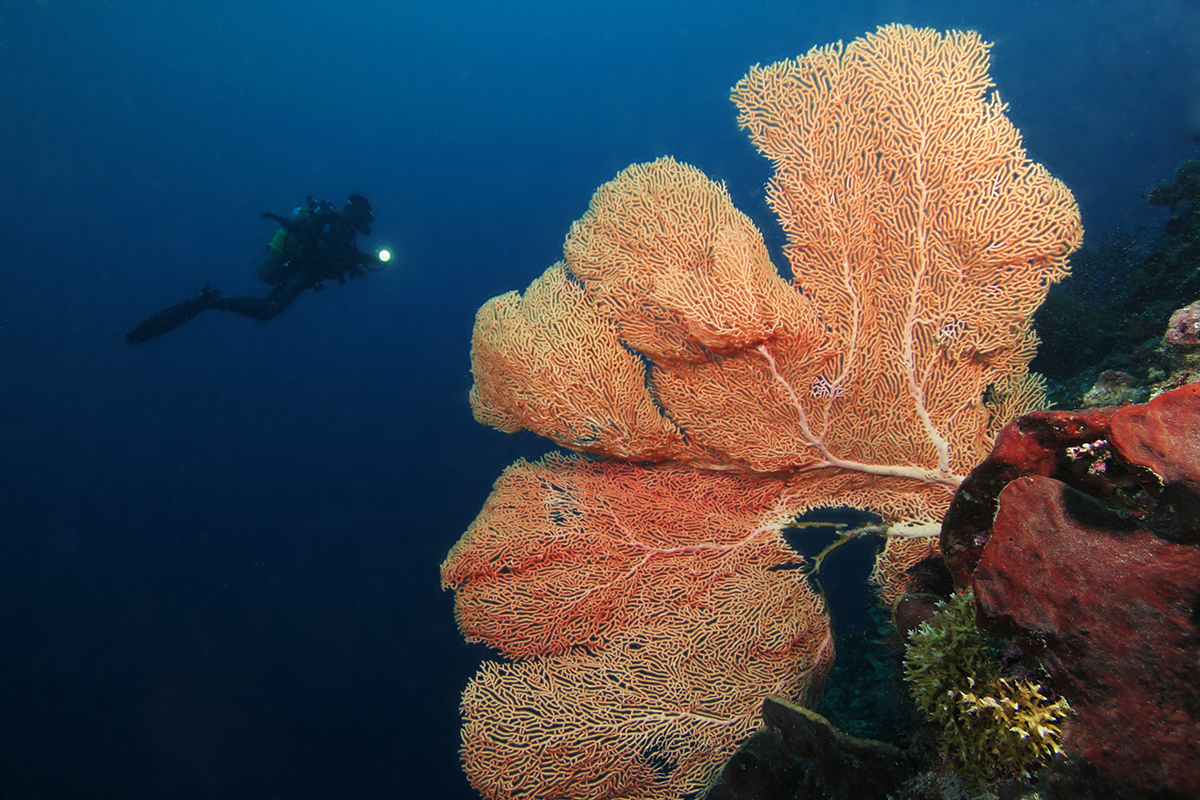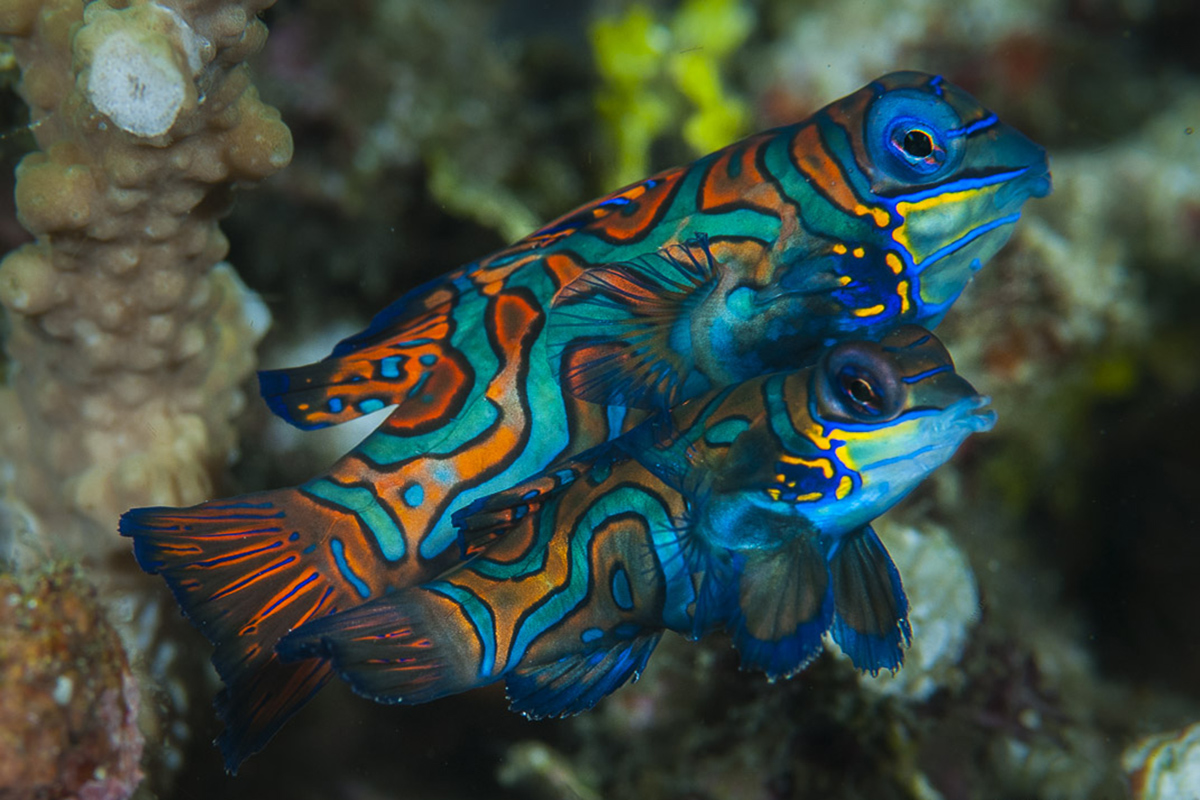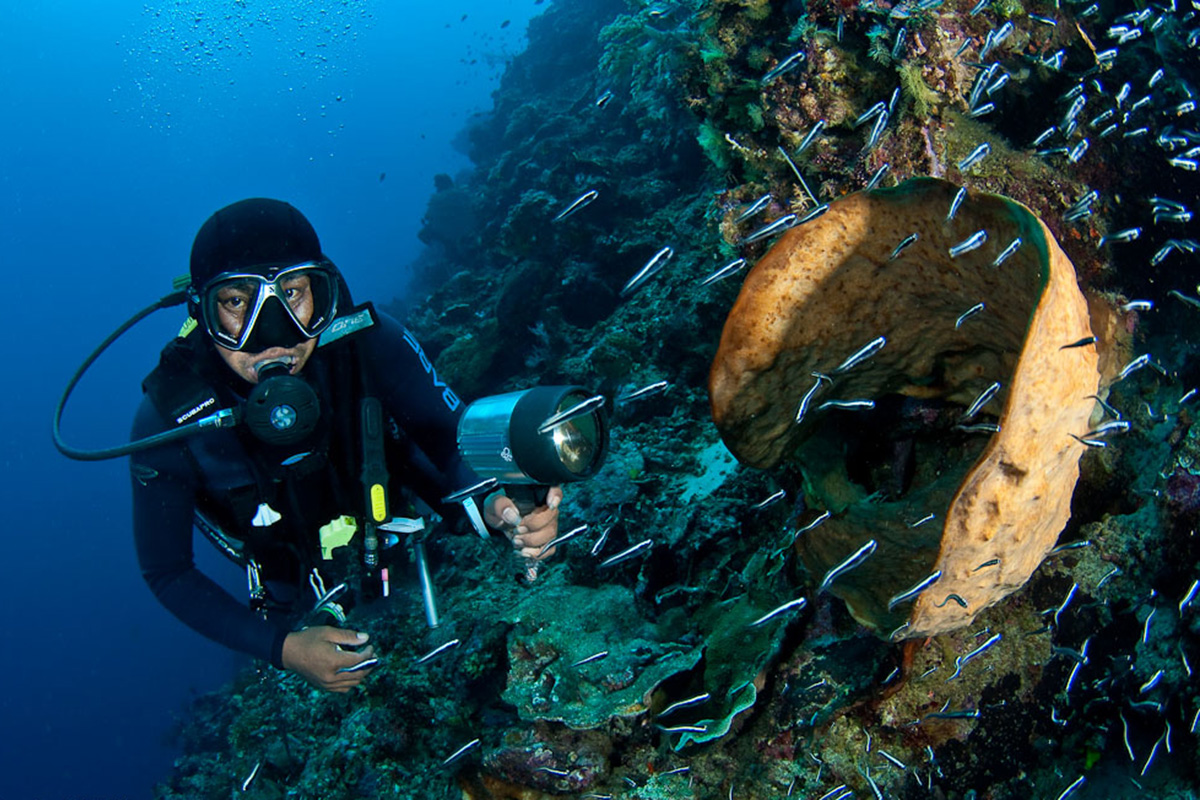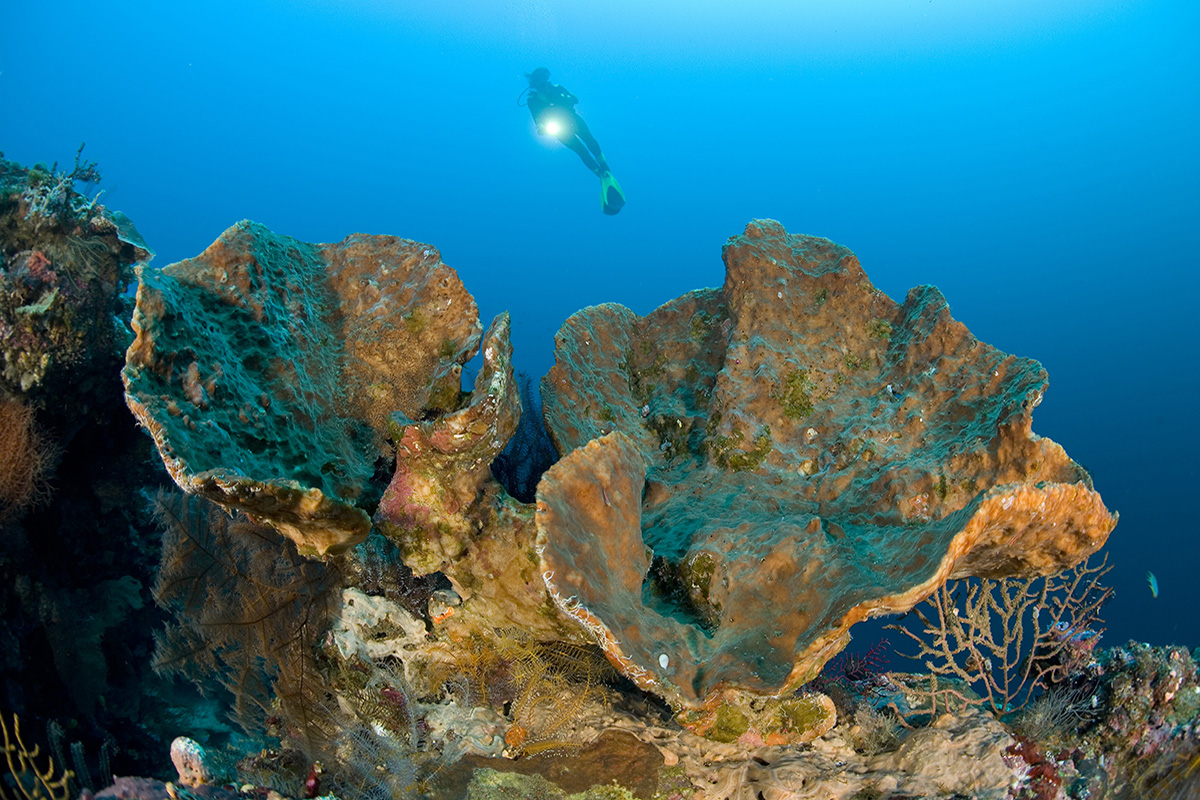Our Top Tips for Night Diving in North Sulawesi
Night diving can be a bit love or hate for divers, but no matter what you think, it is undeniably spectacular. The most common reason divers give for not wanting to dive at night is the fear of what they can’t see. We agree that the darkness of the water around you can be daunting but, with the right equipment it is also one of the best times to see the widest variety of marine life. Diving at night is like seeing a totally different world, just as night-time on land can give you a completely different point of view. We’ve got some top tips for starting to dive at night and also for divers who are already used to night dives.
Dive at dusk
If you are just starting to dive at night a great way to ease in gently is to go out in the evening and stay underwater as the light fades. Near Gangga Island in North Sulawesi the perfect dive for this is to see the amazing Mandarin fish of Lihaga Island. These colourful fish come out from their hiding places around dusk and begin an intricate mating ritual.
By the time you resurface from this dive, the sun is just starting to dip below the horizon and the water is darkening. This gradual easing into a night dive is perfect for those holding onto fear of the dark water.
Scout out the dive
If it’s possible, ask to dive the site you will be diving at night during the day first. This gives you a see what the dive site is like and even look for markers that could help you orientate yourself in the dark. If it’s not possible to dive the site in the light first, ask your dive guides to describe the site in detail for you. They may be able to give you pointers about things to look out for. Just knowing a few characteristics of the area will probably make you feel more at ease.
Lighting your way
Taking the right equipment with you on a night dive is essential. Even with a bright moon there is almost no light under water at all. This is why a good, reliable light is absolutely essential for night diving. Most divers carry a primary light as well as secondary one for backup. Your lights should be lightweight, extremely durable, and have a strong beam. You will be relying on your torch to light your way and also keep you visible to other divers.
Other Safety Equipment
There are a few other pieces of gear we recommend having with you. As with diving in the day, you should always have a dive compass with you at night. This is the main way you will orientate yourself and mark your entry and exit points. Next, we recommend attaching a signal light on your tank. This is an easy way for other divers and your guide to keep track of you.
If you’ve never been on a night dive out of fear we totally understand. We also promise that there is nothing like night diving and once you get under the water you are likely to forget all your worries. The incredibly varied species you will see at night as well as the way the torches highlight the reefs is a totally new way of seeing the marine world.
Are you a fan of night diving? Tell us why in the comments box below and try to convince others that haven’t tried it yet why they should.





